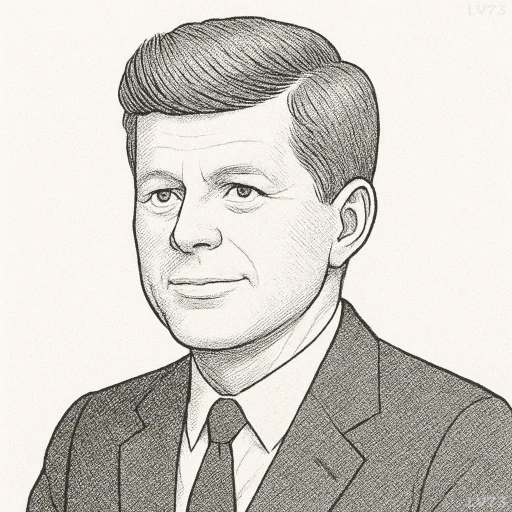“Let both sides seek to invoke the wonders of science instead of its terrors. Together let us explore the stars, conquer the deserts, eradicate disease, tap the ocean depths, and encourage the arts and commerce.”

- May 29, 1917 – November 22, 1963
- American
- Politician
table of contents
Quote
“Let both sides seek to invoke the wonders of science instead of its terrors. Together let us explore the stars, conquer the deserts, eradicate disease, tap the ocean depths, and encourage the arts and commerce.”
Explanation
In this quote from John F. Kennedy’s inaugural address, he calls for a unified and peaceful approach to the power of science and technology. Rather than using scientific advances to fuel conflict or fear, Kennedy advocates for harnessing these innovations to improve humanity. He envisions a world where scientific progress is directed toward the common good, such as space exploration, medical advancements, environmental stewardship, and the promotion of the arts and trade. His vision is one of cooperation and shared purpose, where nations, instead of competing in destructive ways, come together to confront global challenges and uplift the human spirit.
Kennedy’s message was especially relevant in the context of the Cold War, when the world was on the brink of nuclear annihilation, and scientific and technological progress was often tied to the arms race and military escalation. He sought to turn the Cold War rivalry into a force for global collaboration, encouraging both the U.S. and the Soviet Union to use their scientific prowess to achieve peaceful and constructive goals. His emphasis on exploring the stars and conquering the deserts reflected his commitment to advancing humanity’s knowledge and well-being, and it resonated with his administration’s space race ambitions, which ultimately led to the moon landing.
In modern times, the quote continues to resonate, particularly as we face global challenges such as climate change, pandemics, and technological disruption. It reminds us that the pursuit of scientific discovery should be focused on solving humanity’s most pressing problems, rather than creating new ones. Whether through international collaboration on medical research, space exploration, or efforts to address global inequality, Kennedy’s call to use science for the benefit of all people remains an enduring message of hope, cooperation, and human progress.
Would you like to share your impressions or related stories about this quote in the comments section?


